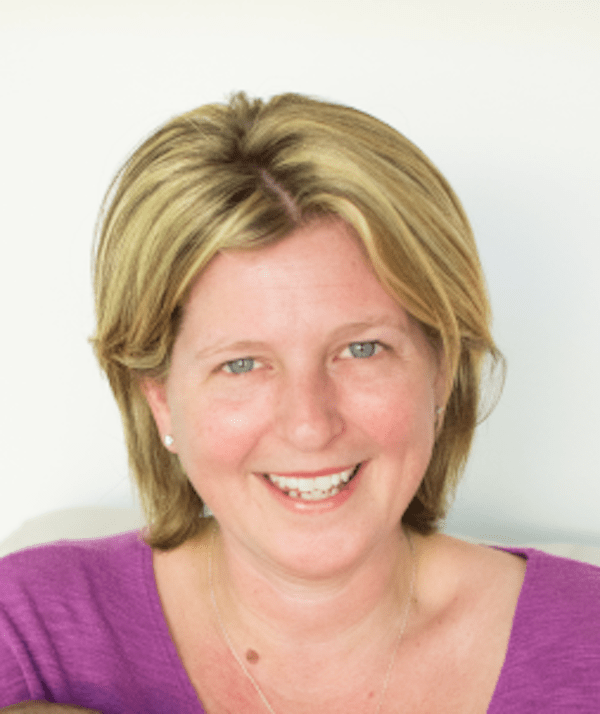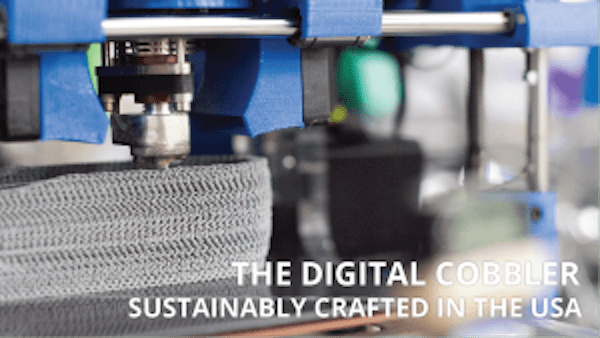
This article originates from Women In 3D Printing and is part of our effort to support the use of 3D printing technology by women. The article is re-published with permission.
Lucy Beard is a former mathematician and actuary who grew to love customers more than numbers during her years working as an executive in Silicon Valley. She experienced her entrepreneurial epiphany one day while she was shoe shopping and realized she could customize her coffee order, but when it came to buying shoes she was stuck with the same ten size options. She founded Feetz to reply to this shoe customer issue we all have.
Nora Toure: Lucy, could you let us know about your background and what brought you into 3D printing in the first place?
Lucy Beard: I’m a mathematician turned actuary that soon learned I wanted to interact with people and not just numbers, so I progressed my career into customer-facing roles like community and social media. 3D printing was just the accident of the solution to the customer problem I found in finding shoes that fit.
Nora Toure: What was your very first experience with 3D Printing?
Lucy Beard: I saw it in a magazine with the words “customized manufacturing” and it intrigued me for the customer problem of footwear. I then went to a meet-up group and saw 30 people with printers and got to see the fascination of a physical item being made that you can hold and touch.
The speaker stated “this machine can change the world, so don’t make yoda heads, go change the world.” This statement still resonates with me and is one I often repeat to others learning about 3DP.
Nora Toure: How did you come to build Feetz?
Lucy Beard: A company evolved out of me having a personal problem, and finding many other people like me that wanted a different option for their footwear. I found a business accelerator program called Founders Institute and spent 4 months getting support, mentoring, and training on the fundamentals of business (like an accelerated MBA program but for your specific business). It was awesome and humbling and immensely valuable. I recommend this to anyone at the idea stage.
Nora Toure: What 3d printing technology and material do you use to build the shoes?
Lucy Beard: We use an FDM 3D printer as we found it had the most flexible technology set that could be adapted to the needs we had – it’s cost effective to invest in, malleable to adjust the mechanics and software to make the product you need, and then made a custom blend of footwear derived materials to work inside the printer. Writing this makes it seem so simple…but it’s taken 2 years to get this built into a system that produces 90% quality and ZERO support materials on the printed product.

Nora Toure: How durable are the printed products?
Lucy Beard: We’ve road tested these shoes for the standard durability of most footwear at 500 miles of wear. We’ve made a product we want you to use and not put on display!
Nora Toure: Was is challenging for you to offer finished 3d printed products to consumers?
Lucy Beard: YES! It’s taken 2 years to pass our standards of a shoe that is custom fit, durable, and stylish.
Nora Toure: Do you have any (fun or not) story about the company to share with us?
Lucy Beard: It was month 5 from the first idea and I was testing and building the concepts. I was asked by a mentor if I was “all in” and had to think about it. A week later I went to a 3DP conference in NYC in a blizzard and the people that battled through the snow to attend because of what they loved in this space. I stood and looked around at the entrance and said to myself “I’m all in!”
It was a pivotal emotional check with myself that I made and the level of focus towards building a company to say “I’m taking this seriously” and having to then make the hard choices in life to make ideas a reality.
Nora Toure: As a woman entrepreneur, what was/ is your biggest challenge? Any challenge specific to the 3D printing industry?
Lucy Beard: Woman are more emotional than men. It works to our benefit in some situations, but in the world of entrepreneurship where you will get 100 “no” for every “yes” it makes many women fold too early.
The first year I was laughed at to my face many times, told “it can’t be done” by 3DP experts. Told “you can’t do this” by people more experienced than I. Many times it bruised me and caused me to ask if I should continue. But I would brush myself off from the comments, and ask for the reasons why the statements were made and learn what was truth and what was just a male ego talking…then kept on moving and building.
Nora Toure: Anything exciting coming up you’d like us to know about?
Lucy Beard: We’ve got our product out now for the public to interact with vs talking about it – it’s so exciting to get that feedback from customers!
Now the journey begins of showing what customization is really about in the world of 3D Printing – we’ve launched 2 silhouettes in our first year, been at major retailers across the country, and have plans to be in multiple locations in 2017.
Sign up for newsletters where we tell our Feetz Footprinters the details first! www.feetz.com.
Nora Toure: What was the most impressive or impactful use of 3D printing you’ve seen so far?
Lucy Beard: I love reading the 3D Printing news and seeing the new things that people think of. I’m most impressed by everything I see on Thingiverse – because it shows how a community of individual designers come together and say “here’s what I’ve made, come make it too”
Nora Toure: What makes the 3D printing industry particularly interesting for you?
Lucy Beard: As both a business person and a new mom, I get to see the experience of celebration in HOW we make things again. We don’t just need to consume, but in understanding HOW we make things, we can now question what’s the Right way to make something. Do we think of the waste, the chemicals, the impact it has from different manufacturing systems? With that knowledge, we can then CHOOSE what we want for our personal future and for future generations.
Nora Toure: What do you think of the 3D printing industry today? And how would you like to see it evolve?
Lucy Beard: The whole ecosystem in 3D Printing evolves quickly – in the space of a few years we’ve seen 00’s printers come out, new materials, and software applications – enabling designers and creators to make things they could not have done so before. Seeing something grow in a 3d printer still fascinates me….
In the same sense, the general public has a fantasy of instant creation because it is a 3d printer. Instant comes from their world of social media and seconds and they apply this to the world of hardware and manufacturing. The industry needs to educate and celebrate that is can take ONLY hours to make something and not months.
Nora Toure: In your opinion, how could we encourage more women to become involved with 3D Printing?
Lucy Beard: I had a fear of failure for so many years that stopped me until I redefined failure as “not trying in the first place”. No-one has it all figured out. It’s the people that get up every day and keep walking forward against the wind that survive and thrive.
Thank you for reading and for sharing!
We invite you to join Women in 3D Printing on LinkedIn and Facebook for further discussion.

